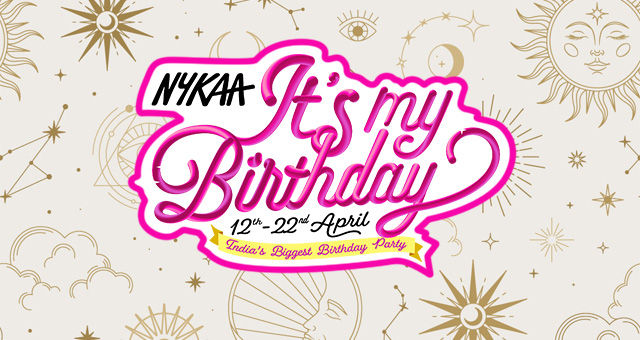
When a fetus dies in the womb before 20 weeks of pregnancy, it is termed as a miscarriage. Most miscarriages happen before 12 weeks of pregnancy, and few of them happen in the second trimester, that is between 13 to 19 weeks of pregnancy. Of all the pregnancies, 10-15% end in miscarriages. In this article, we will be talking about miscarriage symptoms, the causes behind it, depression during miscarriage and how to cope with early miscarriage signs.
Why does a miscarriage happen?
Chromosomal Problems
More than 50% miscarriages happen due to chromosomal abnormalities in the developing fetus. Here are some chromosomal problems that can cause the loss of a baby in the womb:
Getting the wrong number of chromosomes
A baby gets one chromosome from his/her mother and one from his/her father to make a pair. Sometimes, a fertilized egg (or embryo) gets the wrong number of chromosomes, leading to miscarriage.
Fetal Demise
In this case, the embryo fails to develop further and dies.
Blighted Ovum
Dark brown bleeding from the vagina is one of the early miscarriage symptoms in case of a blighted ovum. Once this starts, the feeling of nausea, heavy breasts and other early pregnancy signs disappear.
Translocation
A part of one chromosome sometimes moves to another chromosome. This leads to abnormalities in the development of the fetus.
Problems with Uterus and Cervix
Miscarriages that happen due to the problem of uterus and cervix include:
Fibroids
Fibroids are growths on the uterus that can reduce space and leave less room for the growing baby. If you have fibroids before you get pregnant, your doctor might suggest removing them via surgery.
Asherman’s Syndrome
In Asherman’s syndrome, the inner lining of the uterus develops scars or scar tissue. This may hamper the growth of the baby.
Septate Uterus
Some women might have a muscular wall that separates the uterus. This might need to be removed before trying to get pregnant.
Congenital Uterine Abnormality
This means that you are born with a uterus that has an abnormal size, shape or structure. Septate uterus also comes under this category. This condition might cause repeat miscarriages.
Incompetent Cervix
An incompetent cervix is when the cervical passage or birth passage opens up prematurely. This usually might happen in the second trimester as an opened up cervix pushes the fetus out, leading to miscarriage.
Infections
Sexually transmitted diseases (STDs) and severe food poisoning can also cause loss of pregnancy. Such infections might spread to the blood and uterus and cause a miscarriage.
Miscarriage Symptoms and how to deal with them
Losing a baby during pregnancy comes as a shock, even if it is in the early stages. Early miscarriage signs are hard to miss as they will include:
Bleeding or spotting from the vagina
Spotting, or a dark brown or deep red discharge might start, much like the beginning of a period. The flow might be heavier in comparison, depending on what stage of pregnancy you are in.
Cramps
Abdominal cramps are one of those miscarriage symptoms that is hard to miss. You might experience sharp cramping in the abdomen like you would during your period.
Abdominal pain
Along with cramps, a miscarriage might be accompanied with severe lower abdominal pain.
Dealing with early miscarriage symptoms
The above-mentioned symptoms might be experienced even early on during normal pregnancy. So if you notice spotting or bleeding:
- Call your doctor and fix an appointment to meet him/her at once
- Wear a pad so that the discharge can be studied
- Do not have any over the counter drugs
Miscarriage depression symptoms
It is normal to feel shocked and heartbroken especially if you have a miscarriage after knowing that you’re pregnant. It is important for you to talk it out and seek help after the loss of a baby. But first, you need to recognize the symptoms of depression during a miscarriage.
- feeling irritable or frustrated
- feeling sad, empty, or hopeless
- losing interest or enjoyment in most or all regular activities
- feeling unusually tired and anxious
- sleeping and eating too little or too much
- feeling worthless or guilty
- having difficulty remembering things and focussing
- getting thoughts of death or suicide and making suicide attempts
- having random aches and pains that don’t go away
If five or more of the above symptoms exist for more than two weeks, then a woman may need counseling or intervention of a doctor or psychologist to heal.
Coping with miscarriage
After a miscarriage, anger, depression are common to experience. But most women who suffer from miscarriages have healthy pregnancies in the future. Talking it out with friends and family and keeping up the hope can help you tide over the unpleasant experience and guilt. However, if the depression is severe, doctors might recommend:
- Eating healthy and sleeping on time, and exercising after a period of rest to heal the body
- Antidepressants to reduce depression symptoms
- Psychotherapy to help cope with the grief in a healthy way
- Electroconvulsive therapy (ECT), which means applying mild electric currents to your brain but this is used to treat severe cases of depression
At times, the couple needs to be counseled together as even the man feels grief at the loss of a child in the womb. But supporting each other during such a time can help you tide over this rough patch faster.










